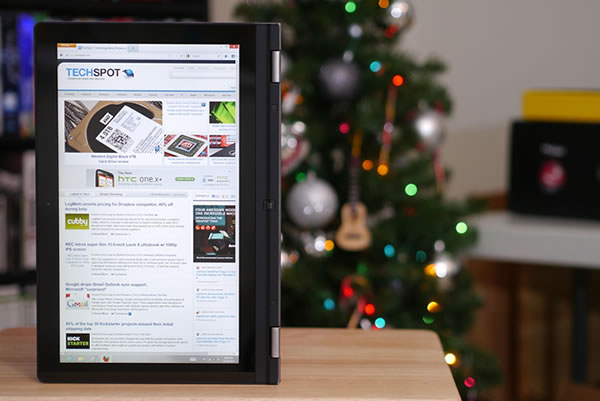The IdeaPad Yoga 13 was one of the first hybrid Windows 8 systems that consumers got a look at. Lenovo unveiled a near-finished prototype at CES nearly a year ago – well before Windows 8 was finished and ready for prime time. Since that time we’ve learned a great deal about Lenovo’s flagship touchscreen convertible but perhaps the biggest question was whether or not a convertible notebook/tablet makes sense at a time when dedicated tablets are arguably the hottest trend in consumer electronics.
Despite multiple attempts from manufacturers over the past several years, hybrids never gained much traction, not necessarily because of hardware issues but simply because the software to support such an environment hasn’t existed until just recently. Previous iterations of Windows did support touch in a limited capacity but the UI was never built with touch in mind.

Evidently that has all changed with Windows 8 which adds a touch friendly environment front and center (but not everywhere) and Lenovo looks to capitalize early and often with the do-it-all Yoga 13. Priced from $999, this system was one of the first portable systems to launch alongside Windows 8. I’ve spent the past several weeks learning the ins and outs of this hybrid Ultrabook and without jumping right to the conclusion from the get-go, I will let you know that it’s a very capable all-around system that doesn’t compromise on what it is first and foremost: a notebook.
Read: Lenovo IdeaPad Yoga 13 Review
These articles are brought to you in partnership with TechSpot.















3 Comments - Add comment